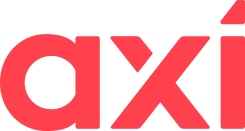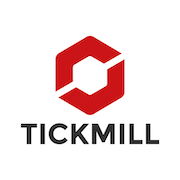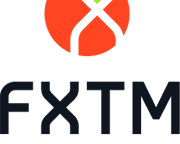For over a decade, FxScouts Tanzania has been reviewing forex brokers and provided in-depth analyses. Our extensive research and unique testing methodology ensures that all broker reviews are accurate and fair with hundreds of thousands of data points generated annually. Since 2012, we’ve tested over 180 brokers across global and Tanzanian markets. Our team of professionals are frequently cited in global and regional media, shaping market conversations and trends.
-
Best Forex Brokers
Our top-rated Forex brokers
-
No-deposit Bonuses
Live trading with no deposit
-
Brokers for Beginners
Start trading here
-
Forex Demo Accounts
Learn to trade with no risk
-
Lowest Spread Brokers
Raw spreads & low commissions
-
TZS Trading Accounts
Save on conversion fees
-
Islamic Account Brokers
Best accounts for Muslim traders
-
ECN Brokers
Trade with Direct Market Access
-
Market Maker Brokers
Fixed spreads & instant execution
-
All Trading Platforms
Find a platform that works for you
-
MetaTrader 4 Brokers
Top MT4 brokers in Tanzania
-
MetaTrader 5 Brokers
Top MT5 brokers in Tanzania
-
cTrader Brokers
Top cTrader brokers in SA
-
Best TradingView Brokers
The Top TradingView Brokers
-
Copytrading Brokers
Copy professional traders
-
Forex Trading Apps
Trade on the go from your phone
75-90% of retail traders lose money trading Forex and CFDs. You should consider whether you understand how CFDs and leveraged trading work and if you can afford the high risk of losing your money. We may receive compensation when you click on links to products we review. Please read our advertising disclosure. By using this website you agree to our Terms of Service.
- Pepperstone - Best ECN Trading Execution
- XM - Broker with the Lowest Spreads in Tanzania
- FOREX.com - Best Trading Platforms
- AvaTrade - Best Forex Broker in Tanzania
- Exness - Best Trading Account Conditions for Beginners
- XTB - Best Proprietary Trading Platform
- HFM - Highest Leverage for Market Execution
- FBS - High Leverage Trading and 1 USD Minimum Deposit
- Axi - Best ECN broker on MT4
- markets.com - Best Mobile Trading Platform
Best Forex brokers in Tanzania


























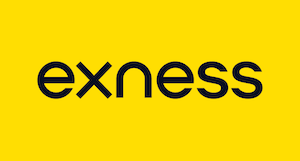










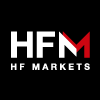























How To Choose a Tanzanian Forex Broker
Although international brokers accept clients from most countries, trading conditions and regulatory supervision may be different for Tanzanian traders. To find the best Forex broker for Tanzanian residents, we need to understand account conditions for Tanzanian clients in detail.
To test each broker’s trading platform, we opened an account, set up the trading software, read through the educational material, and deposited and traded R4000 of our money. We also created all kinds of trouble for the customer service teams, read through the fine print in the client agreements, and tested how long it took to withdraw our money. In our test, we investigated:
Broker Regulation: Regulators keep an eye on Forex brokers to make sure they’re behaving legally and ethically. Some regulators, such as ASIC, the FCA, and CySEC, are better at keeping brokers honest than others. The BOT in Tanzania does not currently regulate Forex brokers.
Account Supervision: Most brokers are supervised by multiple international regulators. As a Tanzanian resident, it is important to know which regulatory authority will supervise your trading account. It is common for internationally-regulated brokers to open trading accounts for Tanzanian residents under their offshore licenses (Mauritius, Seychelles, Vanuatu, etc.) to offer higher leverage or to bypass powerful client protections put in place by the strictest regulatory bodies in the world. Traders with accounts registered under offshore licenses are less protected than top tier regulators and are open to the additional risks of broker bankruptcy, fraudulent activity, or unfavourable trading conditions like a lack of negative balance protection.
Broker Trading Conditions and Costs: Better Forex brokers will often have lower trading costs, meaning that spreads are tight and minimum deposits are low. Trading execution should be lightning-fast and with little or no intervention. Forex brokers should also publish their spreads, execution policy, and a list of all CFDs available to Tanzanian traders. We often see that trading conditions and negative balance protection availability change depending on a trader’s country of residence.
Broker Education and Analysis: Brokers should offer beginner traders a coherent and well-structured trading course alongside a demo account. Brokers should supply detailed market analyses to highlight trading opportunities and provide a complete learning experience. While all material is available in English very few Tanzanian brokers will offer the same material in Swahili.
Broker Trading Platform: Brokers will have their own trading platform or provide support for a third-party platform, such as MT4, MT5, or cTrader. Some brokers will do both. Most Forex traders generally have a platform preference, so brokers with multiple platforms are more likely to have the platform a trader wants to use. Platform availability may vary between countries of residence, so our research notes which platforms are available for Tanzanian residents.
Others Also Visit
Pepperstone – Best ECN Trading Execution
Pepperstone is the leading Australian ECN/STP Forex broker. Overall a great broker but especially well known for:
- Fast market execution
- Tight spreads
- Trading platform choice
- Regulated
- Award-winning customer support
- Great education
Most trades on Pepperstone have execution in less than 30ms, which is ideal for scalpers and clients who run expert advisors. Both accounts offer market execution with some of the tightest spreads in the industry – the Razor Account has spreads down to 0 pips for the EUR/USD and 7 USD commission. Furthermore, Pepperstone supports all three major trading platforms – MT4, MT5 and cTrader.
Regulated on 4 Continents
At Pepperstone clients can rest assured that their money is in safe hands. Not only is Pepperstone regulated in Australia, UK, Cyprus, Dubai, the Bahamas, and Kenya, but all client funds are kept in segregated accounts at Tier 1 banks.
Customer Support and Education
Pepperstone’s award-winning, 24-hour support provides the foundation for its excellent customer service, where personalised assistance is available via several methods. For beginners who are interested in ECN trading, Pepperstone’s also has of the better education sections offered by a market execution broker.
Summary: Why Should Traders Use Pepperstone?
Pepperstone offers high-speed market execution with tight spreads and the detailed education for beginners that most ECN brokers are lacking. With all three major trading platforms available, along with their online and mobile app counterparts, traders have the power of technology and the trading conditions that have earned Pepperstone their reputation.
XM – Tanzanian Broker with the Lowest Spreads
Founded in 2009, XM is one of the most well-regulated brokers in the Forex industry and offers CFD trading on Forex, stock CFDs, commodities, equities, precious metals, energies, and shares. XM are well known for its low trading fees, wide account choice, execution speed and a wide range of CFD assets available on both the MT4 and MT5 platforms. Hedging, scalping and algorithmic trading are all permitted.
XM FEATURES
- Both MT4 and the MT5 trading platforms are supported
- The XM Ultra-Low account: A minimum deposit of 50 USD and spreads start at 0.6 pips with no commission.
- All accounts have a no-requotes execution policy and 99.35% of XM orders are executed in less than one second.
AvaTrade – Best Forex Broker in Tanzania
Who AvaTrade is for: Traders who want a good all-round broker with low costs, free withdrawals, and a well-designed mobile trading app.
Why we like AvaTrade: AvaTrade’s biggest selling points are free deposits and withdrawals to Tanzanian bank accounts and low trading fees, with Forex spreads starting at 0.9 pips on the EUR/USD. While AvaTrade’s minimum deposit of 100 USD isn’t the lowest you can find, it’s still low enough for most beginners. Traders on the move will like AvaTrade’s well-designed mobile app, AvaTradeGO, with its smart risk management tools and direct connection to AvaSocial, AvaTrade’s popular social trading system. Another highlight is the 13 cryptocurrency pairs available to trade at AvaTrade, more than most other brokers in Tanzania. Cryptocurrency traders will also appreciate the dedicated 24/7 crypto trading customer support. It’s no secret that share CFDs are also very popular right now and AvaTrade has that sector covered too with 625 share CFDs to trade, including famous tech stocks like Google, Apple, and Amazon.
AvaTrade’s drawbacks: As we noted above AvaTrade has low trading fees, but they are not the lowest available in Tanzania – some brokers have spreads down to 0.6 or 0.7 pips on the EUR/USD. And it’s possible to find much lower minimum deposits, all the way down to 3 USD in some cases. But most serious beginners will want a deposit of 100 USD or more and AvaTrade’s strength lies in its all-around excellence.
Exness – Best Trading Account Conditions for Beginners
Founded in Russia in 2008, Exness Group has over 200,000 clients worldwide and offers trading on 100+ Forex pairs, a small range of cryptocurrencies, 70+ stock CFDs, indices and commodities. Exness has nine account types on the MT4 and MT5 platforms – many more than most brokers. The Standard Cent Account is aimed at beginners who want low fees and a low minimum deposit with a 1 USD minimum deposit, micro-lots unlocked, and spreads as low as 0.3 pips. The only disadvantages to this account are that traders will only be able to trade currency and metals and MT5 is not supported.
EXNESS FEATURES
- Nine accounts on the MT4 and MT5 trading platforms
- ECN Accounts for experienced traders with raw spreads and 7 USD commission
- Automated instant withdrawal system, with free withdrawals to e-wallets.
- 24/7 customer service
XTB – Best Proprietary Trading Platform
A well-regulated broker, XTB will appeal to traders looking for a wide choice of tradable instruments, low trading fees, top-class educational materials, and excellent market analysis.
- Low trading costs
- xStation5 award-winning trading platform
- Excellent educational support
XTB has a single account with no minimum deposit requirement, and trading costs are lower than most other brokers, with spreads averaging 0.7 pips (EUR/USD) and no commissions. XTB offers trading on over 2100 financial assets, a wider range than is typically seen at other brokers, including 57 Forex pairs, indices, commodities, stock CFDs and ETFs.
The award-winning xStation 5 platform offers many of the same advanced trading features found in MetaTrader 4. It offers powerful charting tools, one-click trading, stop-loss functionality, multiple order types, price alerts, and real-time performance statistics so you can evaluate your trading moves and identify areas for improvement. We find it is particularly easy for beginners to pick up and learn and it’s available in your browser and as a mobile app for iOS and Android.
Educational support for beginners is excellent, and XTB also publishes frequent market commentary and trading ideas in its Market News section. The education section has various courses, and the material is clear, concise, and well-structured. One-to-one mentoring, dedicated account management, webinars, and 24/5 customer service present XTB traders with a fluid onboarding experience.
HotForex – Highest Leverage for Market Execution
Founded in 2009 and headquartered in Cyprus, HotForex is the global brand name of HF Markets Group. Regulated by the FCA, CySEC and the FSCA, HotForex provides trading on Forex, commodities, indices, shares, bonds, and ETFs – though it recently stopped offering crypto CFDs. With No-Dealing Desk STP execution for all trades, client’s trades are posted directly to the market, and leverage is available up to 1000:1 on the Micro Account where the minimum deposit is 0 USD.
HOTFOREX FEATURES
- FCA regulation in the UK
- Tight spreads, starting at 1.00 pip on the Micro Account.
- Detailed market analysis for beginners and professionals, including daily market news, trade analysis, and outlooks.
- Customer support available 24/5 from a toll-free local phone number to assist.
FBS – High Leverage Trading and 1 USD Minimum Deposit
Who FBS is for: With a wide range of accounts, FBS will appeal to both experienced traders looking for high leverage and low fees or beginners looking for low minimum deposits and cryptocurrency trading
Why we like FBS: FBS’ strength is in its range of accounts, with trading conditions for all types of traders. Beginners will focus on its Cent Account with its 1 USD minimum deposit or the Micro Account with a 5 USD minimum deposit, more experienced traders will be interested in the ECN account with a 1000 USD minimum deposit, raw spreads, and a 6 USD commission. Other accounts include a Standard Account with a 100 USD minimum deposit and Zero Spread Account with a 500 USD minimum deposit. Experienced traders will appreciate the high leverage available, with all accounts except the ECN account offering leverage of 3000:1. Beginners will also like the low trading fees on the entry-level accounts, with Cent Account spreads starting at 0.8 pips on the EUR/USD. Cryptocurrency trading is also a big draw here, with 37 cryptocurrencies available to trade, many more than most other brokers.
FBS drawbacks: As most traders know, high leverage is a double-edged sword. While it can greatly increase profitability, it also greatly increases risk. An FBS trading account with only a few dollars in it but 3000:1 leverage can be wiped out in an instant. And while FBS lets clients use the MT4 and MT5 trading platforms, its cryptocurrency products can only be traded using the FBS Trader mobile app. As many people already use their phones to trade, this isn’t the end of the world, but the FBS Trader app is currently only available on Android devices, not iPhones.
Axi – Best ECN broker on MT4
| 🏦 Min. Deposit | USD 0 |
| 🛡️ Regulated By | FCA, CySEC, ASIC, DFSA |
| 💵 Trading Cost | USD 10 |
| ⚖️ Max. Leverage | 500:1 |
| 💹 Copy Trading | Yes |
| 🖥️ Platforms | MT4 |
| 💱 Instruments | Commodities, Cryptocurrencies, Stock CFDs, Forex, Indices, Metals, WTIs |
Founded in Australia in 2007, Axi is an ECN broker offering trading on Forex, metals, commodities, cryptocurrencies, and indices – a smaller group of assets than most brokers but with a good selection of 70+ Forex pairs. Axi only provides support for the MT4 trading platform, but with the MT4 NexGen plugin it has the best ECN MT4 trading experience. The MT4 NexGen plugin includes an advanced sentiment indicator, a correlation trader, a more intuitive terminal window, and an automated trade journal.
AXI FEATURES
- ECN trading conditions, 20 liquidity providers so less slippage and requotes
- Pro Account with spreads starting at 0 pips and 7 USD per lot commission
- Max Leverage of 1:500
- Trading tools include Autochartist, Pysquation (an AI trade diagnostic) and VPS hosting
Markets.com – Best Mobile Trading Platform
The Markets.com app provides a smooth and stable trading experience with low fees and a huge range of tools. With built-in advanced charting, traders have easy access to trendlines, channels, pitchforks, and Fibonacci Retracements. In the chart view, traders can see their orders, related instruments, and open positions with a single click.
The app offers traders fast, commission-free trading with some of the lowest fees available. Spreads start at 0.6 pips on major FX pairs with no commission and leverage of 300:1. The large variety of tradeable instruments include 765 global shares, 56+ currency pairs, 30 global indices, 22 commodities, 77 ETFs, 25 cryptocurrencies, and 4 government bonds.
FEATURES
Effortless mobile trading
900+ CFDs with low fees
Advanced trading tools
What is the Foreign Exchange Market?
The foreign exchange market, also known as the forex (or even more simply, the FX market), is the largest financial market in the world. Every day, trillions of dollars of global currencies are traded in what are called “pairs”, i.e. the exchange of one currency for another, such as rand for dollars, euros for Japanese yen, etc. These transactions are carried out five days a week, 24 hours a day around the globe and determine the value of every currency on the planet second by second, based on supply and demand. So, if the pound is in demand, its value against, for example, the dollar will rise and vice versa.
Given its scale and breadth, forex trading is easily accessible by individual investors, who can open an account with a few hundred pounds and begin trading immediately. But it is easy to lose money, especially if you are a beginner. Trading successfully requires effort, discipline and a determination to learn as much as you can about the market before you start. You also need to understand the regulations governing the market, the costs of trading and which brokers to use. Most importantly, you should understand the risks and disadvantages before deciding whether forex trading is for you.
Why does the Forex Market Exist?
There are many reasons why people trade currencies. Tanzanian companies may need to buy dollars to pay for American imports, or they may need euros to pay for the acquisition of a company based in Europe. Central banks, such as the Bank of Tanzania (BOT), can intervene in FX markets, buying and selling currency to manipulate its value for reasons of economic policy. Speculators also drive a very large part of the market, trading with the aim of generating a profit.
Large financial institutions, multinational corporations and hedge funds dominate the forex market, which reached a value of US$6.6 trillion per day in April 2019, according to the latest statistics. That size means it is a hugely liquid market, i.e. it is very easy to buy and sell currencies because there are so many buyers and sellers in the market for most currencies.
What Drives the Forex Market?
The rand is a free-floating currency. In other words, the value of the rand in the FX markets is determined by supply and demand. This is the case for the currencies of most advanced economies. By contrast, some currencies, such as the Chinese renminbi (RMB), have a fixed exchange rate. The Chinese authorities determine the value of the RMB against the dollar and keep the link until they decide to alter the exchange rate. Clearly, there is no potential for individual traders to profit from trading currencies with a fixed exchange rate.
The value of a floating currency such as the Tanzanian Shilling, however, is constantly moving up and down against other currencies. Often these movements are relatively small, so the rand may begin the trading day at 14.50 rand to the dollar and end a little higher or lower, or even back at its opening level. But dramatic economic or political news can spark much greater volatility. For example, the rand fell by around 30% at the start of the Covid pandemic, back in March 2020. Traders, fearing a prolonged period of economic uncertainty, sold the rand as quickly as they could.
Economic developments are also a key influence. New data suggesting the Tanzanian economy is growing slower than anticipated might spark concerns that CBK could lower interest rates to stimulate growth. Lower interest rates reduce the appeal of holding a currency since you are getting less return on your money. That outlook consequently dampens demand for the rand and its value falls. Similarly, if Tanzania’s economic outlook brightens and traders anticipate CBK will raise interest rates, they will buy the rand, increasing its value against other currencies.
That is why FX traders follow economic, financial and political news so closely, looking for any hint of information that could sway the value of currencies. They are hoping to react before other traders spot the development. Or they may take bets on a likely development, believing they have some insight that other traders lack.
Why is Forex Trading Popular?
Forex trading is the largest and most easily accessible market in the world. The costs involved are relatively low compared with other markets, there are lots of brokers to choose from in Tanzania, and it is relatively easy to understand the ways in which you can trade the market. There are many freely floating currencies and since they can all be traded against each other there are a huge number of currency pairs to trade in. A vast amount of information is available to would-be traders, ranging from how to get started to outlining potentially profitable trading strategies.
You can trade from your living room using a fairly basic computer if you download the appropriate trading software, and it is relatively easy to set up an account with a broker. Unlike other financial markets, you can also exploit the concept of “leverage”, where you make use of borrowed money to increase your potential profits (and your losses). To explain what this means, currency pairs are traded in specific amounts called lots. They tend to be in 100,000 units of a currency, so, for example, if you are trading in the pound sterling against the US dollar, you would buy or sell £100,000 at a time. Since most people don’t have £100,000 available to trade, the broker effectively offers to lend you money. So, they may allow you to trade in a lot of £100,000 by opening an account with £1,000 and lend you the remainder. The initial £1,000 is known as the margin and your leverage, in this case, would amount to 100 to one (100:1).
As we mentioned, as well as increasing potential profits, leverage can dramatically increase risk. There are methods you can use to contain risk, but that is a topic for another article.
The Disadvantages of Forex Trading
Forex trading requires a considerable commitment. It takes time to learn how to trade profitably, and when you start to trade you may have to spend many hours per day on your computer screen following and researching what is happening in the market – and why – in preparation for your trading day. When that day is finished, you will need to analyse what happened and why your trading activities succeeded or failed, so that you can apply the lessons learnt to the next day’s trading. There could be days when you lose money and it is easy to become disheartened. There is certainly no guarantee of success. FX trading can be risky and you can lose money or you may find that it is simply not something you like or have the temperament for. You have to be patient, for example, waiting for opportunities to arise, and the market can experience bouts of extreme volatility that you may find highly stressful.
Is Forex Trading Legal in Tanzania?
Yes, Forex trading is legal in Tanzania. Tanzanian residents can legally trade with any Forex broker in the world, though all brokers are licensed and based overseas.
Overview of Forex Trading in Tanzania
Tanzania has a relatively developed financial market, and the Bank of Tanzania applies strict regulatory oversight for most commercial activities in the country.
Recently the Bank of Tanzania (BOT) and the Tanzania Revenue Authority (TRA) launched a sweeping crackdown on physical foreign exchange bureaus in the country; this was a result of a lengthy investigation that proved that many of the bureaux were covering operations for money laundering and fraud. This crackdown was followed later this year by a tightening of regulations on foreign currency exchange. The new rules make it harder for small exchange bureaus to operate, likely resulting in business moving to the commercial banks.
Apart from raising the minimum capital for Forex bureaus three-fold, the new regulations require all senior management to pass a “fit and proper person test” from the central bank. Bureaus are also required to ensure procedures are in place to identify suspicious transactions, in an effort to prevent money laundering. In addition, all customers are required to provide the source and purpose of the foreign currency to be exchanged.
The Bank of Tanzania and online Forex trading
This crackdown shows that the Tanzanian government can move swiftly and decisively once it believes that there is a need.
While no move as yet has been made to regulate the online Forex CFD market, there are signs that the BOT has started investigations and will be moving forward with some form of regulation shortly.
In August 2019 the Bank of Tanzania issued a circular informing the local CFD industry that they have launched a survey to assess whether the market needs to be regulated (see below).
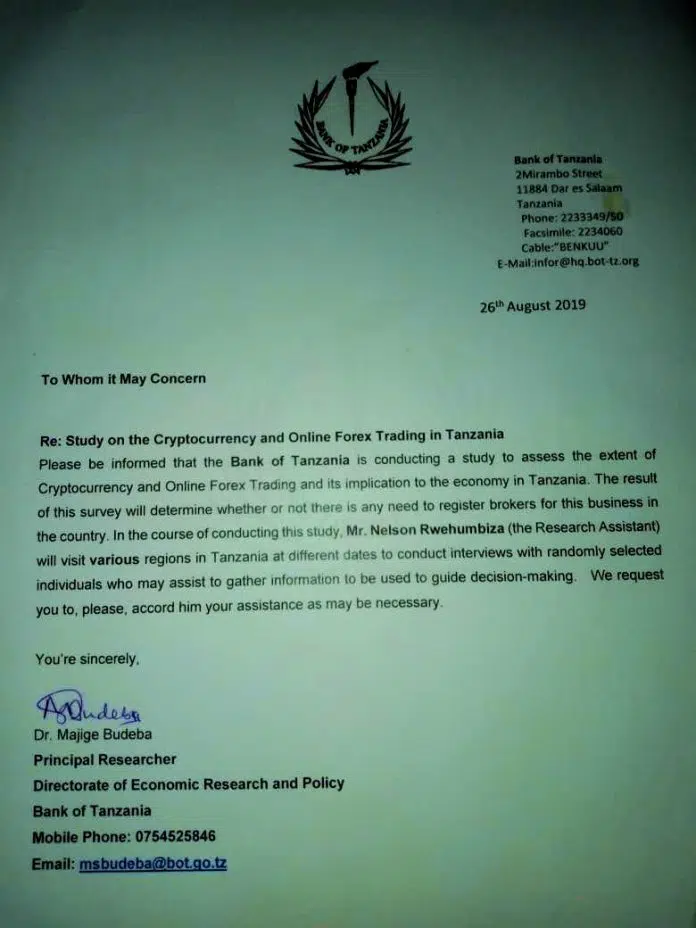
As this survey has continued, the BOT recently held a public forum for stakeholders in the local CFD industry (specifically the Forex and Crypto markets) to “gather more information about the business in Tanzania”.
We are confident that once the BOT and the other relevant authorities have completed this assessment phase, we will see a roll-out of regulation and licensing for both local brokers and international brokers who wish to open offices in Tanzania. As we have seen in other countries across the region, local regulation will benefit Tanzania Forex traders by providing security, enforcement of rules and the removal of bad actors from the local market.
But, to reiterate, until the BOT does have a regulatory regime in place you should trade with a reputable international Forex broker, such as those on the list above.
Advantages of Trading with a BOT-regulated Broker
There are currently no Forex brokers that are regulated by the Bank of Tanzania or any other government authority. When the time that the BOT does start to regulate Forex brokers, traders who are resident in Tanzania will get local protection and oversight of their trading account.
Forex Scams and Bad Brokers in Tanzania and How to Avoid Them
As part of our work at FxScouts, we ask traders who have been scammed or defrauded by Forex brokers – or people claiming to be Forex “experts” – to let us know about their experience (you can find the details here).
Forex Scams
According to our latest research, we found that Facebook and Instagram were the sources of more than 50% of Forex scams in South Africa. Both companies have a poor record of stopping criminals, even after official complaints have been made. We also found that many victims paid the people who scammed them in Bitcoin or other cryptocurrencies and that almost half of the complaints people made were against individual scammers, not brokers.
Both social media and cryptocurrency are great tools for criminals who want to disguise themselves. People can use whatever name they want on social media, and cryptocurrency is almost untraceable. Once someone pays a scammer they met on social media with cryptocurrency, it’s impossible to get their money back.
Other telltale signs of a Forex scam are promises of guaranteed returns and the use of complex jargon. Forex trading is high-risk speculation and even professional traders cannot guarantee returns. And while there is Forex-specific jargon, trading can be explained in simple terms.
Bad Brokers
Avoiding individual scammers is relatively easy compared to avoiding bad brokers. So what can Tanzanian traders do to avoid bad brokers? There are a few telltale signs that a broker is not treating its clients fairly:
- Unpublished spreads: The spread is the broker’s fee for connecting traders to the Forex market. If a broker doesn’t want to say how much this fee is, it’s probably charging too much.
- High deposit and withdrawal fees: Deposits should always be free of charge and withdrawals should be low-cost. Be wary of high fees or unexplained charges
- Delayed withdrawals: Withdrawals should take a few days at the most. If a broker ignores withdrawal requests or delays for more than a week it is cheating its customers.
- Missing Deposits: Bad brokers will sometimes claim to have not received a deposit after it has been made. Always request proof of payment when depositing.
- Unresponsive Customer Service: In many cases, the customer service team at bad brokers will ignore complaints or requests for assistance – especially when dealing with any of the problems listed above.
- Paywalled/Limited Demo Accounts: Demo accounts are the best educational tool beginner Forex traders have. Brokers that require new traders to open a live account before they can open a demo account, or close demo accounts after a short time period, are trying to force beginners to start trading before they are ready.
If you have experienced any of the issues listed above and the broker has a licence from the CMA, you can always submit a complaint via the CMA’s complaints form here.
How to Compare Forex Brokers in Tanzania
Though Forex brokers might appear to be similar, they are quite different once you dig a little deeper, and account conditions will vary for Tanzanian residents. These are some of the most common questions traders will have when comparing Forex brokers.
Forex Brokers for Beginners
- Do I need a broker to trade Forex?
- Which is the best broker in Tanzania?
- Which is the best broker for beginners?
- Which broker has the best demo trading account?
- Are Forex brokers in Tanzania reliable?
- How do I choose a Forex broker?
- How do Forex brokers make money?
Forex Broker Fees and Trading Costs:
- Which brokers have the lowest trading costs?
- How do I make a deposit with a broker?
- How do I make a withdrawal from a broker?
- Which broker has the lowest minimum deposit?
- How do I calculate trading costs?
Other Trading Options
- Which broker has the highest leverage?
- Which broker has the most CFDs?
- Which broker has the most currency pairs?
- Which broker is the best for professional traders?
- What are managed Forex trading accounts?
Forex Broker Regulation
- How do I know if a Forex broker is regulated?
- How do I check if a Forex broker is licenced by the CMA?
Forex Broker Customer Support:
Forex Trading Platforms:
Do I Need a Broker to Trade Forex?
Yes, you will need a broker to trade Forex. Connecting traders to the Forex market is an expensive and technically complex business. It’s important to choose a regulated Forex broker with low costs and a history of treating its clients fairly.
Which is the Best Broker in Tanzania?
The best broker in Tanzania is AvaTrade. Avatrade’s fees are low, with a 100 USD minimum deposit and tight spreads. AvaTrade clients can trade Forex, cryptocurrencies, commodities, indices, stocks, bonds, vanilla options, and ETFs and have a choice of trading platforms and useful trading tools. Finally, the AvaTradeGo mobile app is one of the best-designed trading apps in the world; it’s easy for beginners to learn but with the functionality required by experienced traders.
Which is the Best Broker for Beginners?
IG Markets is the best broker for beginners in Tanzania. IG Markets, with no minimum deposit requirement, has very low trading costs and negative balance protection as standard, making it an excellent low-risk option for new traders. Award-winning customer support is available 24/5 via email, live chat, and telephone. IG Markets also has a great education section, with articles, video tutorials, frequent webinars, advanced trading strategies, and chart analysis.
If you are looking for a reliable regulated broker for beginners, some other good options are:
Which Broker has the Best Demo Trading Account?
HotForex also has the best demo trading account in Tanzania. The HotForex demo account never expires and comes with 100,000 USD preloaded on either the MT4 or MT5 trading platform.
Some other brokers with great demo accounts and strong regulation are:
Are Forex brokers in Tanzania reliable?
Yes, most Forex brokers in Tanzania are reliable and trustworthy. The most reliable brokers in Tanzania are regulated by the CMA and a set of reputable international regulations. They should also have a history of treating Tanzanian traders fairly. If you are unsure about the reliability of your Forex broker, you can check our list of brokers to avoid.
How do I Choose a Forex Broker?
When choosing a Forex broker there are three things to consider:
- Regulation: Make sure you choose a broker regulated by one of the other major regulators like CySEC (Europe), ASIC (Australia) or the FCA (UK). Regulated brokers have better security and will treat their traders fairly
- Cost: Look for a broker with a low minimum deposit and low fees. Broker fees will include the spread, commission and deposit and withdrawal fees.
- Education: If you’re a beginner you will want a broker with good educational content. All of the brokers on our Best Brokers for Beginners page have high-quality education for beginners.
How do Forex Brokers Make Money?
Some brokers (called market makers) only make money from the spread – the difference between the buying and selling price of the currency pair. These brokers will be the counterparty to any trade, so they make money when clients lose trades.
Other brokers (called ECNs) have tight spreads but make money from commissions, which are charged every time a trade is opened or closed. This type of broker makes money whether a client wins or loses.
Which Broker has the Lowest Fees?
Tickmill is the broker with the lowest fees, with the total trading cost on its Pro Account equalling 0.4 pips on the EUR/USD, this includes a 0 pip minimum spread and a round turn commission of 4 USD per 100,000 traded.
Other brokers with low trading costs are:
Broker fees are split into the trading costs, which is the total of the spread and commission, and non-trading fees such as deposit and withdrawal fees.
The spread is the difference between the buy and sell price of a Forex pair and is measured in pips, the smaller or “tighter” the spread the less money you spend when you make a trade. A commission is charged by some brokers every time a trade is opened or closed.
How do I make a Deposit with a Broker?
Making a deposit with a broker is a simple process. Once you have signed up and opened a live account you will be given a few options. Most brokers in Tanzania will accept local bank transfers, credit cards, online payment solutions like Ozow and Payfast, and eWallets like Neteller and Skrill. Bank transfers usually take 1-2 days to process and may have a fee attached but all other deposit methods are usually instant and free.
How do I make a Withdrawal from a Broker?
To make a withdrawal from a broker you must have enough money in your trading account after deducting the margin needed to keep any trades open. Once you know how much you can withdraw, you can make a withdrawal request via your account dashboard. To prevent money laundering, Tanzanian brokers will only let you withdraw the same amount as your initial deposit back to your credit card or eWallet. Anything more than this will have to be withdrawn to a bank account in your name.
Which Broker has the Lowest Minimum Deposit?
Exness is the broker with the lowest minimum deposit. Exness has three standard accounts which are advertised as having no required minimum deposit. This is not entirely true as the minimum deposit Exness accepts from Tanzanian credit cards or bank accounts is 3 US dollars. Other regulated brokers in Tanzania with low minimum deposits are:
With most brokers, larger deposits usually unlock lower trading costs and other perks. What level of minimum deposit you are comfortable with depends on your financial situation.
How do I Calculate Trading Costs?
When trading Forex, the total trading cost is the spread on the currency pair you are trading plus any commission your broker may charge. If you keep a trade open overnight you will also be charged a rollover (or “swap”) fee, which will be deducted automatically from your account. Major pairs, such as the EUR/USD or USD/JPY have tighter spreads and are cheaper to trade.
Which Broker has the Highest Leverage?
FBS offers the highest leverage of any Forex broker in Tanzania. On three of their five accounts, leverage of 1:3000 is available. Other brokers in Tanzania with high levels are leverage are:
Leverage is money borrowed from your Forex broker to increase the size of a Forex trade. Leverage is essential in Forex trading because the movements of the market are too small to make a decent profit unless you place thousands of dollars on each trade. Leverage can be used to make large profits with a little of your own money, but you can also quickly lose more than your original investment.
Which Broker Has the Most CFDs?
IG Markets is the broker with the most CFDs to trade. IG Markets offers trading on over 17,000 instruments, including Forex, indices, share CFDs, commodities, cryptocurrencies, digital 100s, options, ETFs, bonds, and interest rates.
Other brokers with a wide range of instruments to trade are:
Which Broker has the Most Currency Pairs?
Swissquote is the Broker with the most currency pairs, with over 130 currency crosses to trade. As part of a larger banking group, Swissquote is very well regulated and is one of the most secure brokers in the world. Swissquote targets professional traders and minimum deposits are high, starting at 1000 USD on its entry-level account.
Other Forex brokers with a larger than usual selection of currency pairs to trade are:
Which Broker is the Best for Professional Traders?
Pepperstone is the best broker for professional traders. An ECN broker with extensive liquidity streams, Pepperstone supports all three major trading platforms (MT4, MT5 and cTrader) and has some of the tightest spreads in the industry (0.09 pips EUR/USD spread on its Razor Account).
Commissions are low and there are no minimum deposit requirements. Commissions can be further reduced by becoming a member of Pepperstone’s Active Trader Program. The Active Trader Program has a number of other advantages for high-volume traders, including a free VPS service and priority customer support.
What are Managed Forex Accounts?
Some brokers will operate a managed account for you, but this is rare. There are independent money managers who can manage your account while they are trading for themselves. It is vital that you read our article on managed accounts and understand the minimum deposit requirements and additional risks involved when trading CFDs.
If you have any questions after reading through this guide, please get in touch with us in the comments at the bottom of the page.
How do I Know if a Forex Broker is Regulated?
All regulated brokers are required to display their licence number and the authority they received it from on their website. These licence numbers can be easily verified on the regulatory authority’s website. Some scam brokers will use similar names to legitimate businesses, so make sure the name of the licence holder on the regulator’s website matches the broker’s details.
How do I check if a Forex broker is licenced by the CMA?
All Forex brokers that are regulated by the CMA are required to publish their Financial Service Provider (FSP) licence number on their website. Once you have the FSP number of a broker you can go use the CMA’s search page to enter the FSP and verify that the broker is indeed licenced.
How Can I Report Scam brokers?
If you believe you have been scammed by your broker, the first thing to do is warn others and tell your story. You can contact the CMA’s complaints department here and ask them to investigate. We also have a report a scam broker form which we use to gather information so that we get the word out. If you have been scammed, please complete the form.
Which Broker has the Best Customer Support in Tanzania?
KhweziTrade is the South Africa broker with the Best Customer Support. KhweziTrade’s client support team is knowledgeable and helpful and all requests are answered quickly and efficiently. Tanzanian traders are offered a personalised experience, with all traders receiving a personal account manager.
Which Forex Broker has the Best Platform?
Marketsx is a trading platform from Markets.com, offers trading accounts on the Marketsx platform to trade over 2,200 financial instruments. The platform also offers advanced charting, making it easier to spot trends and identify new trading opportunities. Marketsx also allows traders to use five types of indicators once, overlay multiple assets, or compare up to eight instruments side-by-side. Marketsx is available on mobile devices and via the markets.com website.
Which is the Best Platform for Forex?
Currently, MetaTrader 4 (MT4) is the best platform for trading Forex. MT4 has been around since 2005 but is supported by most Forex brokers and used by millions of traders around the world. MT4 is resource-efficient, fast, and can run on older hardware without any issue. It’s also fully customisable and can handle multiple trading accounts from different brokers with a single installation.
MT4 is particularly valued for its automated trading facilities. Traders can create or buy algorithmic trading robots and install them on their version of MT4 to automate trading or assist in decision making. It’s also possible to copy other traders through the MT4 trading signals facility.
Trading with Regulated Offshore Brokers in Tanzania
As mentioned, there are several scam brokers currently operating in Tanzania, and no BOT licenced brokers. The safest and most profitable way to trade Forex CFDs in Tanzania is to trade with a well-regulated offshore broker.
Most of the larger international brokers are regulated by one of three trusted government authorities, the most trusted authorities in the world are:
- The UK’s Financial Conduct Authority (FCA)
- The Australian Securities and Investments Commission (ASIC)
- The Cyprus Securities and Exchange Commission (CySEC)
It is crucial to choose a broker that is regulated by at least one of these authorities, and you will find that some are regulated by more than one. The FCA is seen as the most rigorous of these authorities, as they charge a much higher licencing fee and require brokers to have more operating capital than ASIC or CySEC.
All of these regulators have much higher operating capital requirements than any African financial regulator, and impose much stricter oversight and auditing of the brokers under their supervision, thereby ensuring a fair and secure trading environment.
Brokers with regulation from one of these authorities often have regulatory oversight from smaller, more lenient, regulators too. This allows them to offer a different range of products to overseas clients. For instance, the UK’s FCA requires that maximum leverage is set at 30:1, but an FCA-regulated broker with a subsidiary company regulated by the Mauritius Financial Services Commission (FSC) would be able to offer leverage of 400:1 to clients outside the UK and Europe.
While regulators like the Mauritian FSC are not as well regarded as the FCA, ASIC or CySEC, most of the brokers we recommend for Tanzanian traders are regulated by at least one of the major regulators alongside any more lenient authorities.
Forex Risk Disclaimer
Trading Forex and CFDs is not suitable for all investors as it carries a high degree of risk to your capital: 75-90% of retail investors lose money trading these products. Forex and CFD transactions involve high risk due to the following factors: Leverage, market volatility, slippage arising from a lack of liquidity, inadequate trading knowledge or experience, and a lack of regulatory protection. Traders should not deposit any money that is not considered disposable income. Regardless of how much research you have done or how confident you are in your trade, there is always a substantial risk of loss. (Learn more about these risks from the UK’s regulator, the FCA, or the Australian regulator, ASIC).
Our Rating & Review Methodology
Our State of the Market Report and Directory of CFD Brokers to Avoid are the result of extensive research on over 180 Forex brokers. These resources help traders find the best Forex brokers – and steer them away from the worst ones. These resources have been compiled using over 200 data points on each broker and over 3000 hours of research. Our team conducts all research independently: Testing brokers, gathering information from broker representatives and sifting through legal documents. Learn more about how we rank brokers.
Editorial Team

Chris Cammack
Head of Content
Chris joined the company in 2019 after ten years experience in research, editorial and design for political and financial publications. His background has given him a deep knowledge of international financial markets and the geopolitics that affects them. Chris has a keen eye for editing and a voracious appetite for financial and political current affairs. He ensures that our content across all sites meets the standards of quality and transparency that our readers expect.
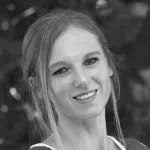
Alison Heyerdahl
Senior Financial Writer
Alison joined the team as a writer in 2021. She has a medical degree with a focus on physiotherapy and a bachelor’s in psychology. However, her interest in forex trading and her love for writing led her to switch careers, and she now has over eight years experience in research and content development. She has tested and reviewed 100+ brokers and has a great understanding of the Forex trading world.
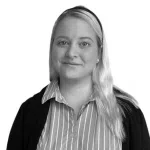
Ida Hermansen
Financial Writer
Ida joined our team as a financial writer in 2023. She has a degree in Digital Marketing and a background in content writing and SEO. In addition to her marketing and writing skills, Ida also has an interest in cryptocurrencies and blockchain networks. Her interest in crypto trading led to a wider fascination with Forex technical analysis and price movement. She continues to develop her skills and knowledge in Forex trading and keeps a close eye on which Forex brokers offer the best trading environments for new traders.


































